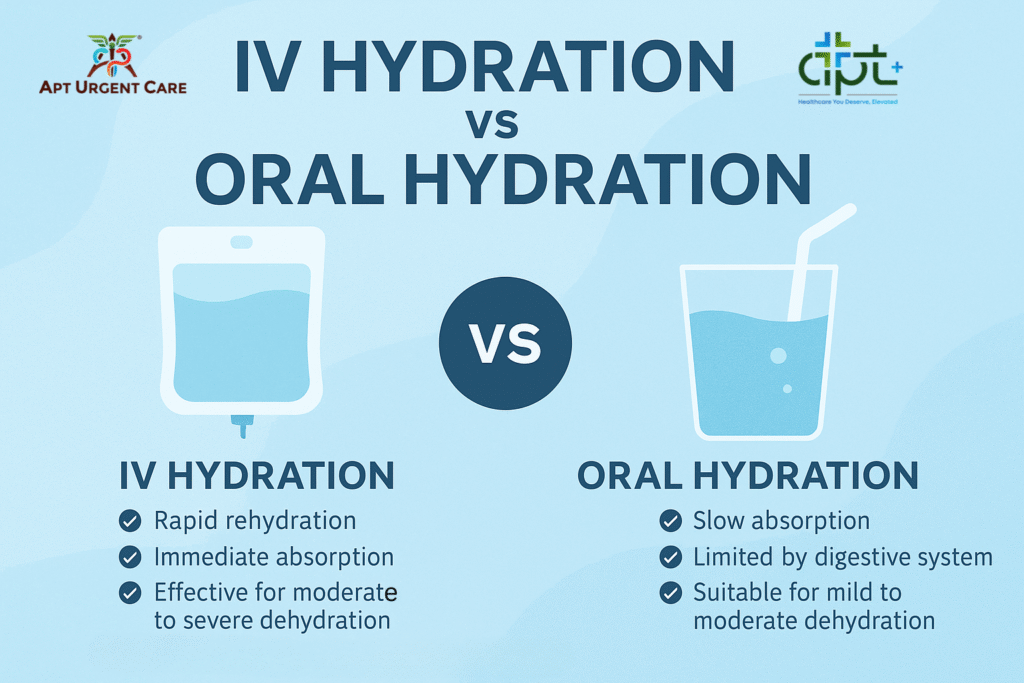Staying hydrated is essential, especially during the hot summer months or after intense physical activity. But when it comes to replenishing lost fluids and nutrients, not all methods are created equal. Let’s dive into the difference between IV hydration and oral hydration—and when each might be the right choice for your health.
💧 What Is Oral Hydration?
Oral hydration is the process of drinking fluids—typically water or electrolyte-rich beverages. It’s simple, accessible, and effective for mild dehydration and daily hydration maintenance. However, its efficiency can be limited by:
- Slow absorption through the digestive system
- Fluid loss due to nausea, vomiting, or diarrhea
- Barriers to intake in individuals who can’t tolerate large volumes of fluid
💉 What Is IV Hydration?
Intravenous (IV) hydration bypasses the digestive system, delivering fluids, electrolytes, and nutrients directly into the bloodstream. This results in:
- Rapid rehydration
- Immediate bioavailability of nutrients
- More efficient correction of moderate to severe dehydration
- Support for illness recovery, athletic recovery, or jet lag
🧊 When Is IV Hydration More Beneficial?
- After heat exhaustion or dehydration from outdoor activity
- When recovering from stomach flu or food poisoning
- During illness with nausea or vomiting
- For individuals with difficulty absorbing nutrients orally
- In athletic recovery or post-travel fatigue scenarios
⚠️ Are There Any Risks?
While IV hydration is generally safe, it should be administered by trained professionals. Potential risks include:
- Minor bruising at the injection site
- Rare allergic reactions
- Overhydration, particularly in individuals with heart or kidney issues
Always consult a healthcare provider to determine which method is most suitable for your needs or visit APT Urgent Care at your earliest convenience.
📍 Walk-ins welcome!
📞 281-692-9770
🌐 apturgentcare.com – IV Hydration


